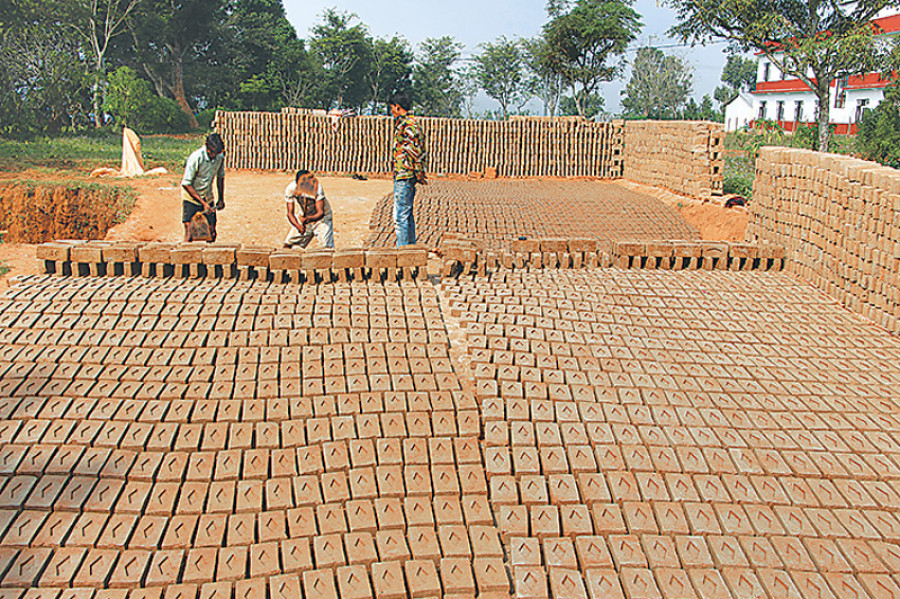Money
Mushrooming brick kilns in Salyantar raise concerns
Nepal’s biggest raised flat-land of river deposition with human settlement, Salyantar, is now surrounded by more than 100 unchecked brick-manufacturing factories that discharge smoky haze adversely destroying the greenery and affecting human health.
Harihar Singh Rathaur
Nepal’s biggest raised flat-land of river deposition with human settlement, Salyantar, is now surrounded by more than 100 unchecked brick-manufacturing factories that discharge smoky haze adversely destroying the greenery and affecting human health.
Centuries old native shrubs or trees have gone extinct due to unorganised brick kilns that have been emitting black carbon — the biggest threat to environment — for a long time.
Phadi Kanta Chhatkuli, former chairman of Salyantar VDC, said the haze has profound effects on old native shrubs or trees and is causing a great deal of concern.
“The village has been suffering from severe water shortages as a result,” he said, adding public health is another concern as Salyantar has witnessed high rate of elephantiasis.
Salyantar VDC, which is 14km long and 3-5km wide, stands on a deposit of red mud which is used to prepare bricks. There are more than 2,300 settlements.
Each ward has at least 10 factories. Most of the villagers set up their own factory when they construct a house. None of the operators are registered. Each of them records an annual transaction of more than Rs1 million.
Majority of the brick kilns are concentrated in ward no 2 and 5. The two wards have a combined 23 brick factories. None of the kilns in the VDC have chimneys.
They normally use wood to burn clay bricks, which is against the law. As forests in the VDC have already exhausted, the kiln operators are now procuring firewood from the neighbouring Mulpani, Jyamrung and Agnichowk villages. “A tractor-load of wood costs Rs5,000,” said Ram Bahadur Surkheti, who owns a brick kiln. “It needs at least three-tractor-load of wood to burn bricks once.”
Another operator Nawaraj Shrestha said due to poor road condition, it is difficult to
procure coal. “Without coal, we cannot set up chimney.
So, none of the kilns is registered.”
After last year’s earthquakes, locals aggressively set up the factories to produce the construction material for reconstruction works.
“We can reduce the reconstruction cost by Rs50,000 if we produce our own bricks,” said Dan Bahadur Kumal, a local of Dhadgoan in Salyantar. There are more than 400 workers employed in the brick factories in Salyantar and most of them are from India.




 21.02°C Kathmandu
21.02°C Kathmandu














